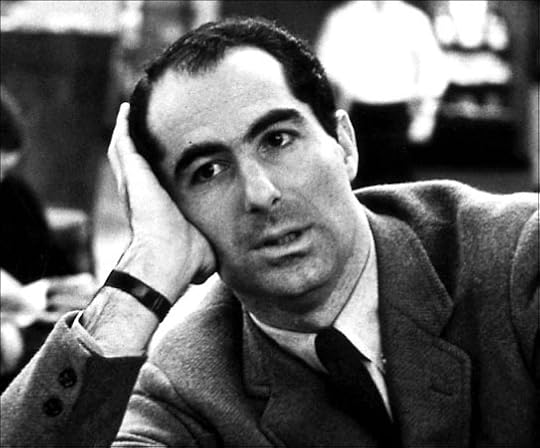What do you think?
Rate this book


208 pages, Mass Market Paperback
First published January 1, 1993

«- È stata un’esperienza strana leggerlo, molto strana. Perché non avevo dubbi su quali parti fossero state scritte solo per me. Magari mi sbagliavo, eppure non avevo dubbi. E non ne avevo neanche su quali pezzi invece non mi riguardassero, forse li riconoscevo meglio ancora degli altri.
- Sono sicuro che non ti è sfuggito niente di tutto questo. D’altronde quella era la nostra vita, così come io pensavo che avrebbe potuto essere. La nostra vita, anche.
- L’avevo capito. Sì, l’avevo capito. È una storia così strana.
- Lo so. Nessuno ci crederebbe.»
«Sono stato ad ascoltarlo per una buona mezz'ora, poi ho deciso che aveva bisogno di una piccola lezione di storia. Gli ho detto: «Tuo padre, all'inizio del secolo, aveva tre scelte.
Uno: sarebbe potuto rimanere con la nonna nella comunità ebraica in Galizia. E, se fosse rimasto, cosa sarebbe successo? A lui, a lei, a te, a me, a Sandy, alla mamma, insomma a tutti noi? Okay, questo era il numero uno: saremmo finiti tutti in cenere.
Numero due. Sarebbe potuto emigrare in Palestina. Tu e Sandy avreste combattuto contro gli arabi nel 1948 e, se anche uno di voi non si fosse fatto addirittura ammazzare, di sicuro qualcuno ci avrebbe rimesso almeno un dito, un braccio, un piede. Nel 1967, io avrei combattuto la Guerra dei sei giorni, e almeno un piccolo "shrapnel" me lo sarei beccato. In testa, per esempio, con il risultato di perdere la vista da un occhio. I tuoi due nipoti avrebbero combattuto in Libano e, be', tanto per non esagerare, immaginiamo che solo uno di loro due ci avrebbe lasciato le penne. Questo per quanto riguarda la Palestina. La terza possibilità che gli rimaneva era quella di venire in America. Ed è quello che ha fatto. E qual è la peggior disgrazia che può capitarci, qui in America? Che tuo nipote sposi una portoricana. O vivi in Polonia e subisci le conseguenze del fatto di essere un ebreo polacco, o vivi in Israele e subisci le conseguenze di essere un ebreo israeliano, oppure vivi in America e subisci le conseguenze del fatto di essere un ebreo americano. Dimmi tu quale preferisci. Dimmelo, Herm.» «Okay, - ha ammesso lui - hai ragione, hai vinto! Non dico più niente!».



Senti,tu non puoi appropriarti in quel modo di tutto quello che una persona dice.
-Eppure l'ho fatto.Lo faccio.
-Bé, ero molto arrabbiata per questo.Un po' come quegli indigeni che non vogliono farsi fotografare,perchè sentono che qualcosa verrebbe sottratto alle loro anime.
-Non dubito che fossi arrabbiata.
-Molto arrabbiata ,sì.
-E quando ti è passata?
-Probabilmente non mi è passata.
-Ho avuto nostalgia di quando parlavo con te.
-E ti appropriavi di quello che dicevo.
-Certo.
-Bé,sai...anch'io ho avuto nostalgia di quando parlavo con te.
Ho avuto una nostalgia tremenda DI QUANDO PARLAVO CON TE.
Qualche volta parlo con te dentro la mia testa.